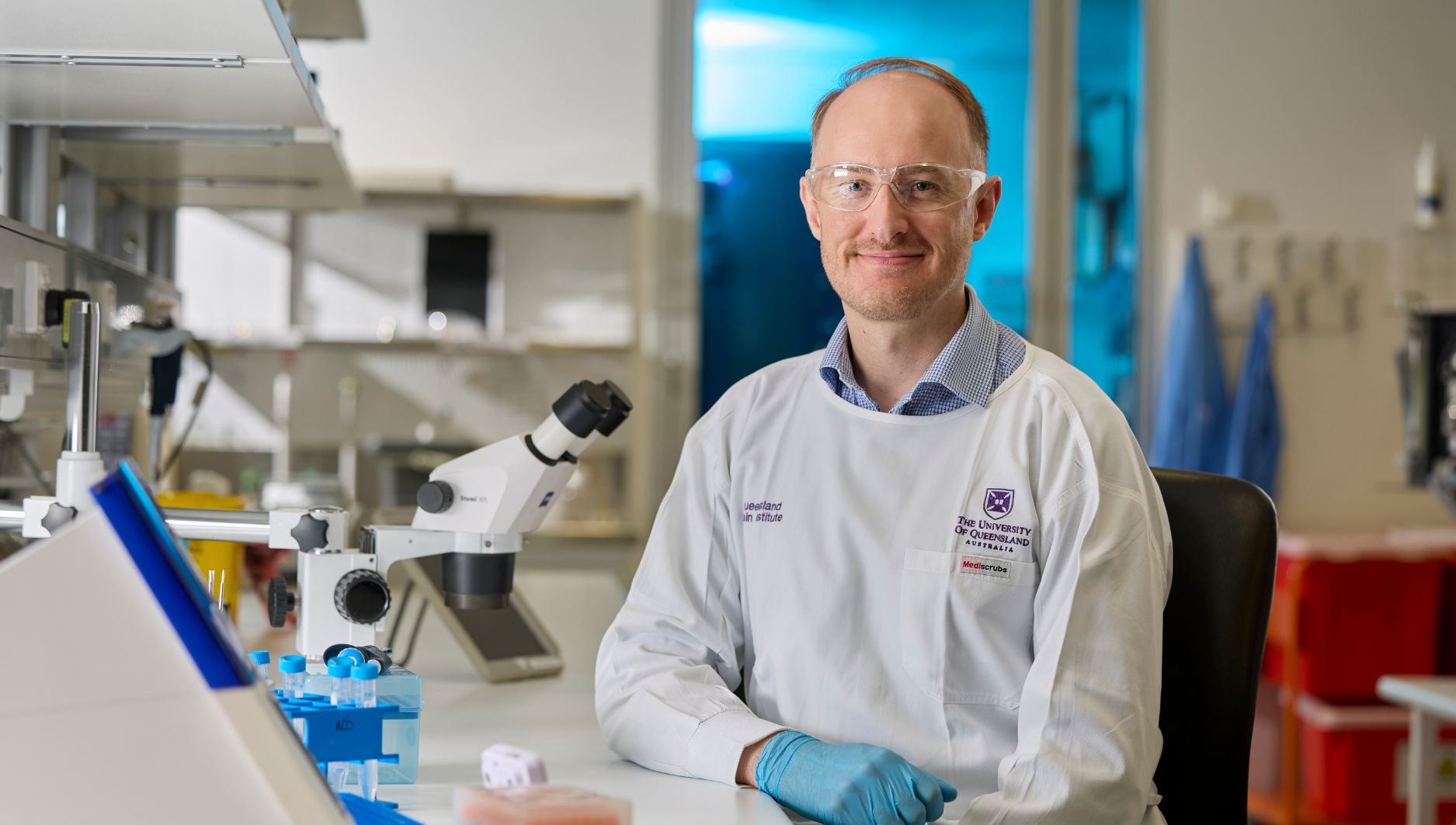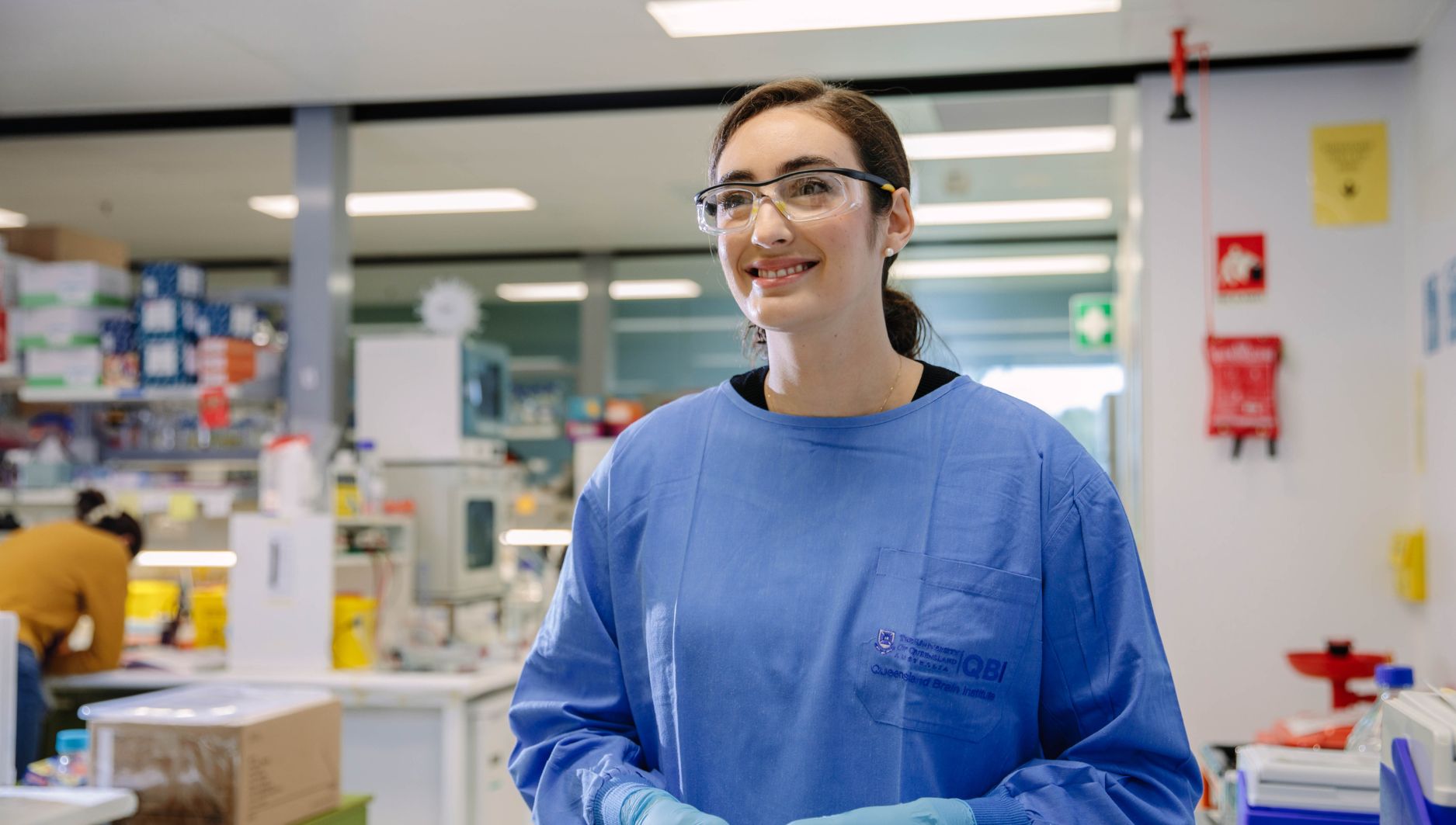A collaboration between The University of Queensland (UQ) and the Queensland Emory Drug Discovery Initiative (QEDDI) has received a $550,000 FightMND grant to create and test new molecules for motor neurone disease (MND) treatment.
UQ’s Queensland Brain Institute (QBI) and Ross Maclean Fellow, Associate Professor Adam Walker, leads the team in identifying the proteins and enzymes to target.

“In people living with MND, unwanted proteins clump together within the nerves in the brain and spinal cord, causing neurodegeneration,” Associate Professor Walker said.
“In most people with MND, including those with sporadic MND, the main protein that aggregates is TDP-43.
“Our project aims to develop new drugs that can stimulate the normal protein recycling systems within nerves to clear unwanted protein clumps, including aberrantly folded forms of the TDP-43 protein.”
The team will design and test molecules that specifically activate a crucial regulator of the recycling pathway in a way that has not been done before.
Associate Professor Walker said the project builds on previous data suggesting the approach could be beneficial in decreasing amounts of abnormal TDP-43 proteins.
“Our focus is now on developing upstream clearance pathway activators.
“By combining our knowledge of MND pathology and medicinal chemistry, we are getting closer to MND drug development and translation.
“The first steps are to test how the molecules affect cells and human neurons grown in the lab and mouse models of MND.
“Within two years, we hope to have identified the best molecule for further pre-clinical development before trials in people with MND are possible in the future.”
In collaboration with Associate Professor Walker’s lab, Dr Rebecca San Gil has also secured a $1 million FightMND Discovery Grant to investigate the consequences of TDP-43 aggregation in MND neurons further.
Over the next three years, her team will evaluate the effect of changes to messenger RNA on the translated proteins in the brain, aiming to improve our understanding of the molecular mechanisms driving disease and identify the paths forward for generating new therapies.

Dr San Gil explained that in MND, the dysfunction of the protein TDP-43 results in many changes to the RNA and protein constituents of neurons.
“Our research aims to identify the most important and earliest changes to messenger RNA and the flow-on effects to translated proteins in models of TDP-43 dysfunction,” Dr San Gil said.
“This project has the potential of identifying target messenger RNA or proteins that can be used as MND-specific biomarkers for disease progression.
“Also, by revealing which RNA and protein changes in neurons are the most important in early disease, we will further our understanding of significant disease processes that propel MND forward.”
Dr San Gil will complete this project at the University of Sydney, where she was recruited to establish her first independent laboratory in 2025.
Associate Professor Walker’s project builds on previous work funded by FightMND (the Bill Guest Mid-Career Fellowship), MND Research Australia (Sean Keating PhD top-up scholarship), and the Thornton Family Foundation (Sean Keating PhD scholarship).
Dr San Gil and Walker are part of the MND@UQ Collective, which nurtures national and international collaborative research efforts to pioneer scientific and clinical discoveries in MND and frontotemporal dementia.



